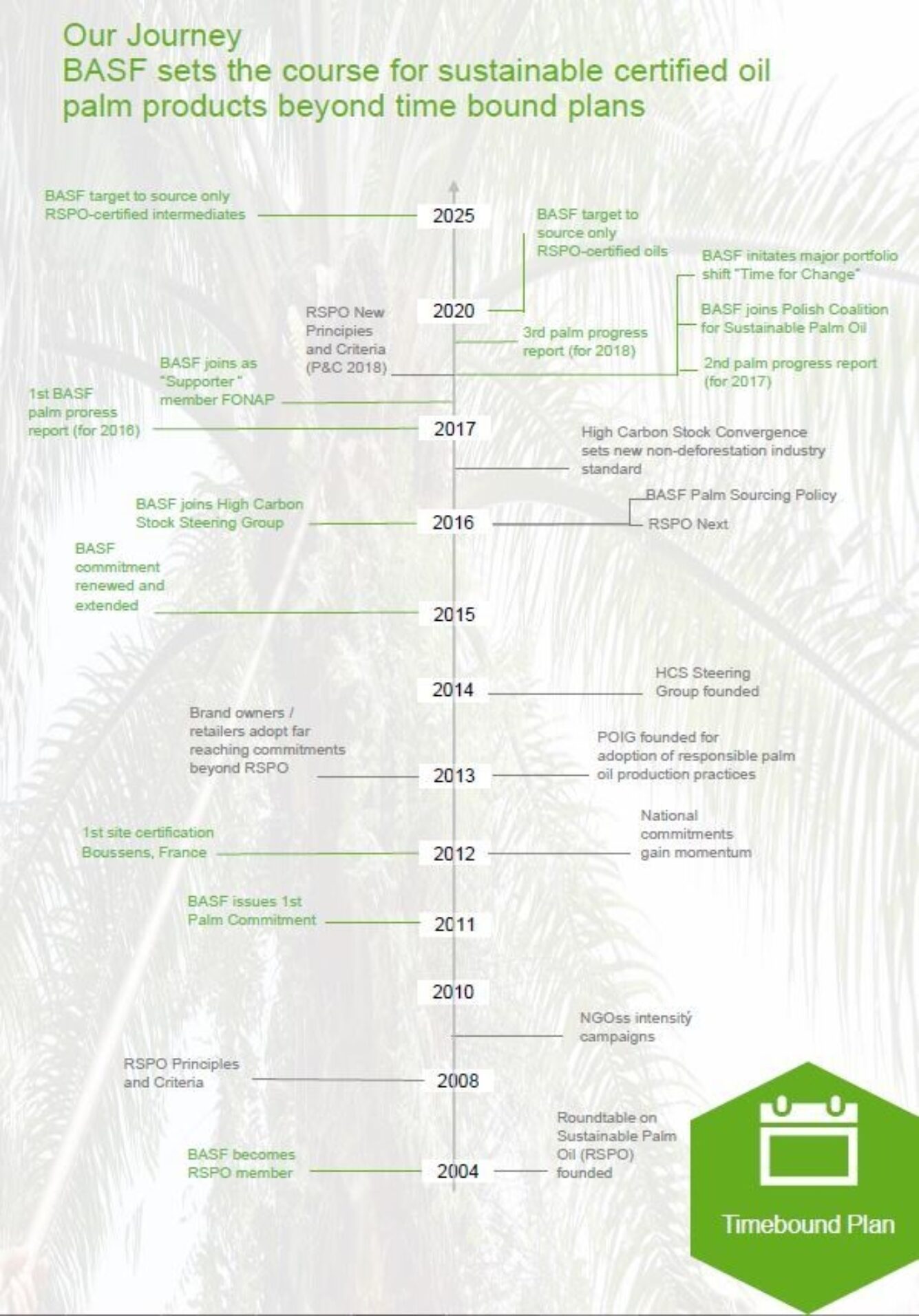100% of palm oil and palm kernel oil procured by BASF in 2020 was RSPO certified sustainable, representing 227,213 metric tons, and achieving a major target on the timebound plan
Our Palm Commitment
BASF advocates market transformation towards certified sustainable oil palm products. We actively support the Roundtable on Sustainable Palm Oil (RSPO) and have been working to foster the physical transformation of the industry. Read on to learn more about our journey to sustainable palm and our achievements in 2020.
Palm oil remains the most widely consumed vegetable oil in the world, found in half of all packaged products. In the decade from 2003 to 2013, global demand for palm oil more than doubled and since then has continued to rise. No wonder. It’s versatile, easy to process, and yields per hectare of land are much higher than sunflower, rapeseed and other vegetable oils. It helps feed a growing world population and gives work to millions of small farmers. In addition, palm kernel oil also has unique chemical properties which make it an important renewable raw material.
In Indonesia and Malaysia, small holder farmers account for 40 percent of the total area of planted oil palms and as much as 33 percent of the output.
This means no sustainability policy can be effective without considering smallholders as a crucial part of the value chain. Sustainability certification, such as the RSPO, can be costly and difficult to achieve for smallholders. However, it is also high in demand and can provide premiums.
Almost 95% of BASF global palm footprint in 2020 traceable back to the oil mill level
Project Lampung
In 2019, BASF, The Estée Lauder Companies and the Roundtable on Sustainable Palm Oil (RSPO) partnered with the civil society organization Solidaridad to promote sustainable palm oil and palm derivatives production in the district of Waykanan, Lampung, Indonesia.
The project supports independent Indonesian smallholder farmers to improve their livelihoods and their sustainable production of palm oil and palm kernel oil. It offers continuous education and technical support on implementing and maintaining sustainable palm oil practices. The project’s target is that a minimum of one-third of the supported smallholder farmers become certified according to the Smallholder Standard of RSPO at the end of three years.
The project partners are collaborating with the Indonesian government to foster a sustainable palm oil production supply chain in Lampung that is free from deforestation and competitive in the global market, while increasing the social and economic benefits for farmers.
More than 300,000 metric tons CO2 in 2020 avoided
by sourcing certified sustainable palm kernel oil*
* The
product carbon footprint is calculated according to the requirements
and guidelines for
quantification as stated in ISO “14067:2018-08 –
Greenhouse gases – Carbon footprint of products”

Additional Resources
2019 Palm Progress Report: Read here
Palm Dialogue Continues here
BASF Magazine article, “The Palm Oil Challenge”
